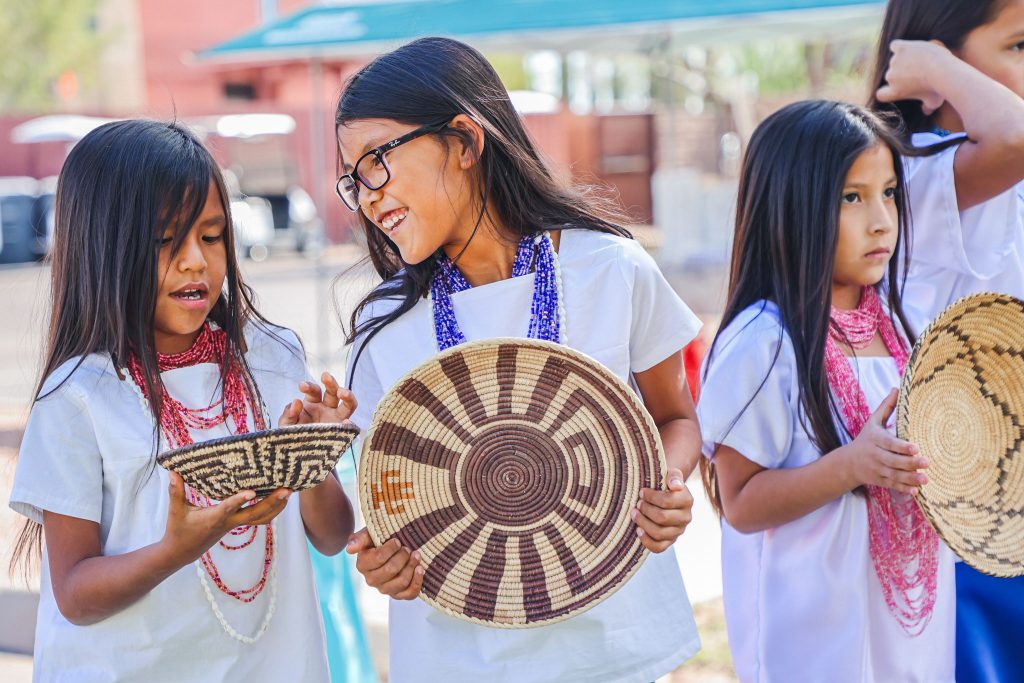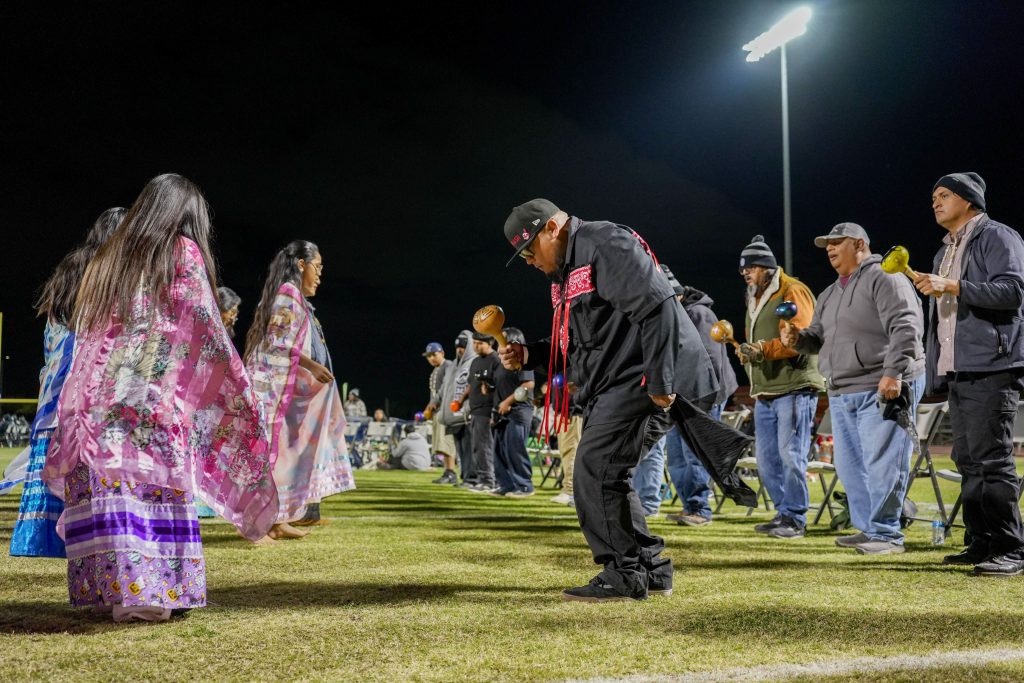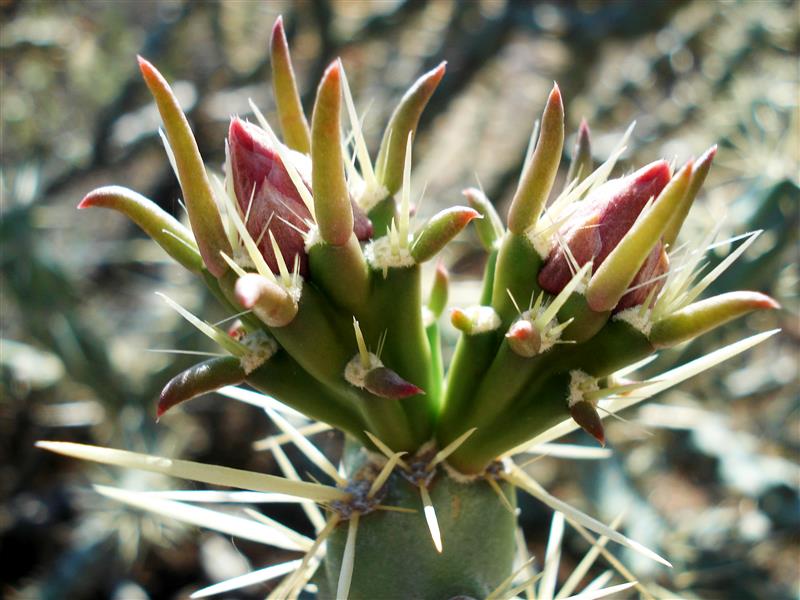
Proposal
To consider a formal name change for the Salt River Pima-Maricopa Indian Community; replacing one or more non-Indigenous names with traditional ones.
Current Name Used Day-to-Day
Salt River Pima-Maricopa Indian Community
Official Federally Recognized Name
Salt River Pima-Maricopa Indian Community of the Salt River Reservation, Arizona
Background
In 2023, the SRPMIC Council identified several priority issues to be addressed within the Community. Preservation of the O’odham and Piipaash languages is one of those identified priorities.
The Strategy “P” Team was created to identify opportunities for expanding, increasing and improving the Community’s language preservation, maintenance and revitalization efforts. While some recommended strategies are relatively simple, others are comparatively complex and require Community feedback and support.
The proposed Community name change is a monumental proposal that would require significant Community support, effort and resources to achieve. Therefore, it is important to get feedback from Community members to determine if this is a goal that can or should be realized.


Community Name Background
We have always referred to ourselves as O’odham and Piipaash. When non-Indigenous explorers and settlers arrived in our territory, they categorized and labeled our people in ways that made sense to them but were foreign to us. Over time, Pima and Maricopa became the standard labels used for the O’odham and Piipaash residing in what is now known as the Phoenix Valley. Consequently, when the United States federal government formally recognized our tribe(s), they used these non-Indigenous identifiers. At present, the official name of our tribe in the Federal Register is Salt River Pima-Maricopa Indian Community of the Salt River Reservation, Arizona, but we commonly use Salt River Pima-Maricopa Indian Community.
Origins of Pima and Maricopa
The origin of the name, Pima, is not well documented but the origin most accepted by the O’odham is that it is derived from “pi” (a negation in O’odham) and “ma:c” (to know). The story that has been passed down through generations suggests the early Spaniards had difficulty communicating with the O’odham, because the O’odham could not understand Spanish. Therefore, there were many instances when the O’odham expressed that they didn’t know or understand. Consequently, the Spanish referred to the O’odham as Pimas, the “I don’t know” People.
The most common explanation for Maricopa is that it is a distorted form of Mariposa, which means “butterfly” in Spanish. The story handed down suggests that the Spanish called the Piipaash Mariposa because of their colorful face paints. Americans later mispronounced the word as Maricopa. However, documentation suggests that this was originally an O’odham word that the Spanish wrote as Cocomaricopa. The term Mariposa is not found in Spanish or Mexican documents in reference to the Piipaash, but Cocomaricopa is used regularly. American General, Stephen Kearney, was the first person reported to abbreviate Cocomaricopa to Maricopa in 1846.
In any case, Pima and Maricopa are not what we called ourselves. They are names that others called us.

Potential Benefits of Proposed Name Change
- Language Visability
Including traditional O’odham and Piipaash names could help promote and normalize use of Indigenous languages in daily life. - Cultural Identity
Using original names may further reflect the Community’s heritage and offer an opportunity to express self-determination.. - Community Connection
Traditional names highlight ties to ancestors and strengthen a sense of belonging across generations. - Public Awareness
A new name may encourage broader recognition and respect for the Community’s history and culture. - Opportunity for Healing
For some, reclaiming a traditional name may feel like a step toward addressing past injustices and moving forward.
Consideration of a Name Change
- Community Consensus
A name change requires support from both leadership and Community members, and opinions may differ on whether to change the name or which option to choose. - Language Fluency
Not all members may feel connected to or comfortable using a traditional name if they are unfamiliar with the languages or pronunciations. - Costs and Logistics
Updating signage, legal documents, government contracts, IDs, and program materials would involve both expense and administrative effort. - Adjustment to Change
Some may feel the current name is well-established in Community life and see little need for change. - Public Understanding
Outside entities may mispronounce or misunderstand the new name, requiring time and education.
7 Options to Consider:
Hear From Community Leaders
In this overview video, SRPMIC staff share background and context for the seven proposed name change options for the Community.
Kelly Washington, Director of Cultural Resources; Dawn Sinoqui, Assistant Community Manager; and Rebecca Makil, Director of Recreational Services, read through each option and explain the perspectives, language considerations, and cultural meanings behind them.
Watch the video below, then explore each option in more detail by expanding the sections that follow.
Option 1: Salt River O’odham Piipaash Indian Community (SROPIC)
Replace Pima-Maricopa with O’odham Piipaash
Click to hear the audio pronunciation
Perspective:
Using O’odham and Piipaash in our official name reflects our original language and identity. These are the names our people have always carried, and including them allows us to define ourselves in our own terms.
Counter-perspective:
Pima and Maricopa may not be our original names but at this point, they have been used for hundreds of years, and they are well recognized. Many of our own people today self-identify as Pima and/or Maricopa. Using our original names O’odham and Piipaash could be confusing for those who are not familiar with these terms.
Option 2: Salt River O’odham Piipaash Community(SROPC)
Replace Pima-Maricopa with O’odham Piipaash AND Omit the word Indian
Click to hear the audio pronunciation
Perspective:
The word “Indian” comes from a mistake by European explorers, and although the error was realized long ago, the term has continued to be used for centuries. For some, the word feels outdated or offensive, and they question whether it should remain part of our official name.
Counter-perspective:
The word “Indian” has also been part of our identity for generations and continues to carry legal meaning, recognizing our political status within the United States. For some, the word is familiar and still represents an important part of who we are.
Option 3: Salt River O’odham Piipaash Nation (SROPN)
Change Pima and Maricopa to O’odham and Piipaash, delete Indian AND replace Community with Nation
Click to hear the audio pronunciation
Perspective:
Our tribes are recognized as domestic dependent nations with inherent powers of self-government. Using the term “Nation” in our name conveys sovereignty and strength in a way that “Community” does not. Our status as a tribal nation matters when we interact with the state, other governments, and outside organizations. While we are a community, we are also a tribal nation.
Counter-perspective:
Our former leaders chose the word “Community” in our name to highlight the values they envisioned – people who share a place, norms, and identity. Politically, we are a tribal nation, but continuing to use “Community” emphasizes our unity and sense of caring for one another. A nation can be divided, but community reflects people coming together.
Option 4: Onk Akimel O’odham Xalychidom Piipaash Nation(OAOXPN)
Replace Salt River Pima-Maricopa with specific tribal names and replace Community with Nation
Click to hear the audio pronunciation
Perspective:
We are O’odham and Piipaash, but more specifically we are Onk Akimel O’odham and Xalychidom Piipaash. These names distinguish us from our relatives in other places and reflect our unique identities and languages more fully. Since “Onk Akimel” means Salt River, including the English name would be redundant.
Counter-perspective:
Including “Salt River” in our name already distinguishes us from other O’odham-Piipaash communities. “Salt River” is also a well-established part of our identity, connected to many of our enterprises, departments, and organizations:
• Discover Salt River
• Salt River Fields at Talking Stick
• Salt River Devco
• Salt River Police Department (SRPD)
• Salt River Fire Department (SRFD)
When people hear “Salt River,” they almost always associate it with our Community. While a complete name change may be a possibility for the future, keeping part of our current name provides continuity and stability. A complete change at this time may feel too drastic.
Option 5: Onk Akimel O’odham c Xalychidom Piipaash Jeveḍ (OAOCXPJ)
Use Specific Tribal Names with “Jeveḍ.“
Click to hear the audio pronunciation
Perspective:
Instead of “Community” or “Nation”, this option uses “Jeveḍ”, which means “land” in the O’odham language. It also uses “c” which is the O’odham way of saying “and”. One of the primary reasons for suggesting a name change is to support the O’odham and Piipaash languages. Therefore, it makes sense to commit completely and omit all English.
Counter-perspective:
The other options give equal representation to both Native languages, but this option favors the O’odham language. Additionally, this option introduces a special character that is unique to the O’odham writing system (a dot under the d). Using this will pose significant text challenges for those who do not have a special O’odham keyboard or font. Finally, the entire Phoenix Valley is O’odham jeveḍ. O’odham jeved isn’t limited to the current Community’s boundaries.
Option 6: Salt River Pima-Maricopa Indian Community
No Change. Leave it as is.
Click to hear the audio pronunciation
Perspective:
This is a well-established name that everyone is familiar with already. Changing our name would require a lot of time and resources. It could also cause a significant amount of confusion, especially during the transitional period. There are currently no issues with using it, so all the effort and confusion seems unnecessary.
Counter-perspective:
Names imposed by external entities can be seen as a continued assertion of dominance. A fundamental aspect of sovereignty is the right of a people to identify themselves. Using O’odham and Piipaash instead of Pima and Maricopa is an act of sovereignty that also connects us to our ancestors and our heritage. By using our true names, we honor the knowledge, traditions, and identities of those who came before us, fostering a stronger sense of belonging and continuity. Changes such as omitting Indian or changing community to nation reflect the current values and perspectives of tribal members.
Option 7: Write-in Option
Click to hear the audio
Do you have a name you would like to see, that is not an option listed?
Survey & Raffle Information
Share your voice and help shape the future of our community. Complete the survey to be entered into weekly prize drawings. Youth from 13 – 17 years old are eligible to take the survey and enter the raffle.
ADULT PRIZES
Gift Cards
TVs
Air-fryers
Lunch Bags
Meta Smart Glasses
YOUTH PRIZES
Laptops
Headphones
Smart Phones
Gift Cards